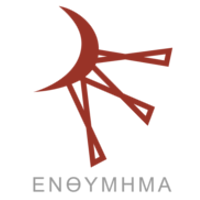Anthropologie littéraire et narratologie « nietzschéenne » dans l’œuvre de Wolfgang Iser
DOI:
https://doi.org/10.13130/2037-2426/8322Ключевые слова:
Narratologie, Nietzsche, Iser, Fictive, Imaginaire, Anthropologie littéraire,Аннотация
Résumé :
La mise en évidence des affinités qui rapprochent les modèles de l’expérience esthétique de La Naissance de la Tragédie de Nietzsche et de The Fictive and The Imaginary d’Iser possède plusieurs avantages. En premier lieu, la comparaison entre le binôme apollinien/dionysiaque de Nietzsche d’une part, et le binôme imaginaire/fictif d’Iser d’autre part, pourrait enrichir ultérieurement l’arrière-plan « philosophique » qu’Iser, à plusieurs reprises, a voulu fixer comme base conceptuelle historico-critique fondamentale de sa conception du littéraire. Secondairement, une comparaison entre les « grilles interprétatives » des deux auteurs pourrait s’avérer crucial en vue de l’introduction de la pensée nietzschéenne, surtout de celle de la « première période », si riche en contenu, dans la réflexion actuelle en théorie littéraire et plus précisément dans le débat narratologique contemporain. En outre, la conjugaison des deux visions respectives de l’expérience esthétique pourrait nous aider à cerner avec plus de précision les contours de l’anthropologie littéraire entendue comme la discipline référence de la recherche en littérature, capable d’expliquer « why we find an insatiable pleasure in making ourselves into our own possibilities ».
Abstract :
An analysis about the affinities between the Iser's The Fictive and The Imaginary and Nietzsche’s The Birth of Tragedy approaches offers several advantages. Firstly, the comparison between the Apollonian/Dionysian dichotomy of Nietzsche on one hand, and the Imaginary/Fictive dichotomy of Iser on the other hand, could enrich the « philosophical » background that Iser, repeatedly, wanted to establish as a historical-critical conceptual basis for his conception of literature. Secondly, a comparison between the interpretative approaches of the two authors could be crucial for the introduction of Nietzschean philosophy, especially that of the "first period", so rich in content, in the current reflection in literary theory and more precisely in the contemporary narratological debate. Moreover, the conjugation of the two visions of aesthetic experience could help us to define more precisely the contours of the « literary anthropology » understood as a « main field » of literature research, capable of explaining « why we find an insatiable pleasure in making ourselves into our own possibilities ».
Скачивания
Библиографические ссылки
ADAM J.-M., Les textes : types et prototypes, Paris, Editions Nathan, 1992.
ARISTOTE, La Poétique, texte, traduction et notes par R. Dupont-Roc et J. Lallot, Edition du Seuil, collection « Poétique », Paris, 2011 (1980).
BARONI R., La Tension Narrative, Paris, Seuil, 2007.
BARTHES R., S/Z, Paris, Seuil, 1970.
- Le Plaisir du texte, Paris, Seuil, 1973.
BROOKS P., Reading for the plot : design et intention in narrative,
Harvard University Press, 1992.
COLLI G., Dopo Nietzsche, Milan, Adelphi, 1974.
DERRIDA J., « Force et signification », dans l’Ecriture et la Différence, Paris, Editions du Seuil, collection « Tel Quel », 1967.
ECO U., Les limites de l’interprétation, Paris, Grasset, 1992.
FINK E., La philosophie de Nietzsche, Paris, Editions de Minuit, 1965.
FLUCK W., « The Search for Distance : Negation and Negativity in Wolfgang Iser’s Literary Theory » dans New Literary History, Vol. 31, n. 1, 2000, pp. 175 – 250.
ISER W., L’Acte de lecture – théorie de l’effet esthétique, Liège, Pierre Mardaga Editeur, 1976.
- Prospecting, From Reader Response to Literary Anthropology, Baltimore, The Johns Hopkins University Press, 1989.
- The Fictive and the Imaginary, Charting Literary Anthropology, Baltimore, The Johns Hopkins University Press, 1993.
LAVOCAT F., Fait et Fiction, Paris, Edition du Seuil, collection « Poétique », 2016.
MASINI F., Lo Scriba del Caos, Interpretazione di Nietzsche, Boulogne, Il Mulino, 1978.
NIETZSCHE F., Œuvres complètes de Friedrich Nietzsche, textes et variantes établis par G. Colli et M. Montinari, traduits de l’allemand par M. Haar, P. Lacoue-Labarthe et J.-L. Nancy, Paris, Editions Gallimard, 1977.
PASSALACQUA F., PIANZOLA F., « Epistemological Problems in Narrative Theory, Objectivist vs. Constructivist Paradigm » dans Narrative Sequence in Contemporary Narratology, sous la direction de R. Baroni, F. Revaz, Columbus, The Ohio State University Press, 2016, pp. 196 – 217.
RAVEGGI A., « Das Fiktive und das Imaginäre : risposta estetica e oggetto artistico in Wolfgang Iser », dans Dall’oggetto estetico all’oggetto artistico, sous la direction de F. Desideri et G. Matteucci, Florence, Firenze University Press, 2006, pp. 187 – 195.
RICOEUR P., Temps et récit, Vol. 1, L’intrigue et le récit historique, Paris, Editions du Seuil, 1991.
ROSSI L. L., « Wolfgang Iser, lo spettro dell’interpretazione », dans Enthymema, n. 1, 2009, pp. 25 – 49.
SARTRE J-P., L’Imaginaire. psychologie phénoménologique de l’imagination, Paris, Gallimard, 1940.
- Qu’est-ce que la littérature ?, Paris, Gallimard, 1948.
SCHAEFFER J.-M., « Littérature et Intentionnalité », dans Littérature et Théorie, sous la direction de Jean Bessière, Paris, Editions Champion, 1998, pp. 11 – 41.
SCHWAB G., « If Only I Were Not Obliged to Manifest : Iser’s Aesthetics of Negativity », dans New Literary History, Vol. 31, n. 1, 2000, pp. 73 – 89.
SEMERARI F., « Il viaggio e la dimora: momenti della dialettica dell’esistenza in Nietzsche », dans Paradigmi, n. 38, 1995, pp. 211 – 238.
Загрузки
Опубликован
Как цитировать
Выпуск
Раздел
Лицензия

Except where otherwise noted, the content of this site is licensed under a Creative Commons Attribution 4.0 Unported License.
Accepted 2017-06-24
Published 2017-06-27


